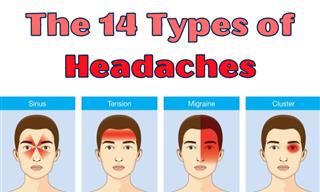I often struggled to get a good night’s rest when I was working, but since retiring I have discovered where I was going wrong. Instead of trying to sleep for eight hours straight, I now go to bed at dusk, sleep a few hours, then wake up for a couple more hours. After that, I sleep a second time and wake up refreshed at dawn. This has revitalized my life, and there is good science and historical evidence to back up my claim that we should all be doing this. I heartily recommend the following two-sleep solution to you.
When I was working, I was often stressed about getting enough rest. This became a self-perpetuating cycle so that I was never properly rested and never really alert during the day. But the big change that I have made these last few years is going to bed early. Ancient clocks used to count the day’s hours from 6am till 6pm (and these were called the first and last hours) and now so do I, going to bed when the sun goes down and my eyes are heavy – this is when my night begins.
Then I sleep around four hours and wake up naturally. I rarely care what time it is, so I just refer to it as midnight. And I’ve found out that this 'midnight' is not only my second waking time, but it was also the case for millions of people throughout history.
Virginia Tech historian, A. Roger Ekirch has documented that this pattern (sleep at dusk, wake at ‘midnight’ for a couple of hours and sleep til dawn), was the norm throughout pre-industrial Europe. At 'midnight' people would do household chores, read, sew, knit, or talk, along with other bed-related activities. There is also evidence that this pattern was adopted in the sleeping habits of native Americans and other tribal societies that knew nothing of modern life. Now, I and other like minded people are finally joining in our ancestor's lost habits.
It was perhaps in the upper echelons of Western society during the 17th century that people first began to adopt the more modern approach of sleeping in one great chunk – 'binge sleeping'. By the 19th century accounts began to emerge of people suffering insomnia, just when ‘split sleep’, as I practice it, was virtually eradicated to accommodate people’s new working hours.
But for the workers of the future, in a globalized world where communicating with people across time zones becomes essential, split shifts may become the norm, which could be a great benefit for our health if we learn to readopt our ancestor’s sleep habits. Perhaps in the future, the sleeping pattern we moderns have adopted will seem to be a blip and mistake of history as we return to the good old ways.
A scientific breakthrough
Thomas Wehr conducted a fascinating sleep experiment, which seems to suggest that humans naturally prefer the split sleep pattern I am advocating. The psychiatrist invited a group of people to his sleep laboratory where they were exposed to 14 hours of darkness, as our ancestors would have expected for much of the year.
After one month in these conditions the participants began to adopt the sleep pattern of the ancients. When they were ready for bed they slept approximately four hours, and woke up between one to three hours, then slept for another four hours. So, it seems likely, given natural conditions, that man is naturally evolved to take a ‘bi-phasic’ (two phases) sleep.
Habits are hard to break, though. As I have said, it took my retiring for me to acquire this new habit. Many of us spend our days working (9-5) and hesitate to start disrupting our sleep patterns, just in case we make things worse for ourselves. But if you do try this method, here are some of the clear advantages you will likely enjoy:
Advantages to bi-phasic sleep
• Reduced tiredness: Instead of getting more tired as the day goes on, breaking your sleep up will keep tiredness far away.
• Increased alertness: The flip-side of tiredness is alertness, and you will enjoy plenty of this by breaking up sleep.
 • Improved memory: When you are more alert you take on information and can hold onto it much more easily
• Improved memory: When you are more alert you take on information and can hold onto it much more easily
• Increased learning ability: You will properly process new information and be alert enough to make use of it
• Improved mood: There is nothing more typical of a tired person than grouchiness, and that’s one thing no one will be sorry that you say goodbye to.
• Time and energy to do some midnight activity: With your mind functioning better and some free time at midnight, perhaps you will read, start a new nocturnal hobby, spend some quiet private time with your nearest and dearest, or catch up on your chores. You will enjoy these activities and do them more efficiently having just had a few hours sleep.
Give it a Try
So, now you understand more about bi-phasic sleep, why not think about giving it a try? It may take a few weeks of adjustment, but here some things you need to bear in mind:
Minimize all artificial lights after dark, that includes TVs and devices. It may be difficult at first to get to sleep, but, after a few days, you will be naturally tired enough at this point for you to do so. In the meantime why not try this amazing sleep inducing massage? Otherwise here are some terrific home-remedy juices that we recommend you try.
Bonus: Brief Ted talk on 'bi-phasic sleep' from Jessa Gamble
 Go to BabaMail
Go to BabaMail




























